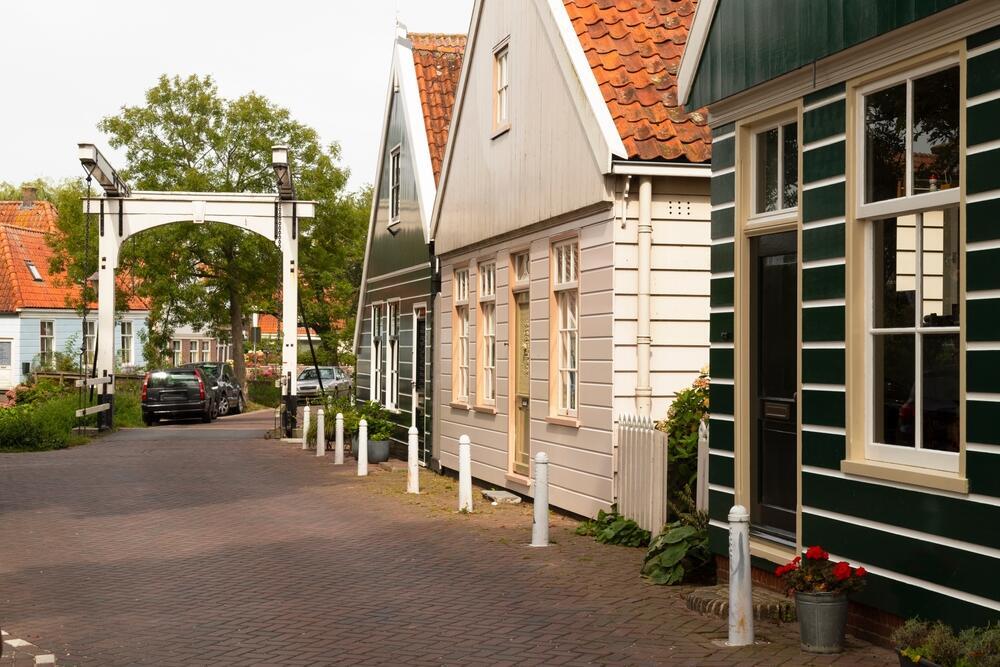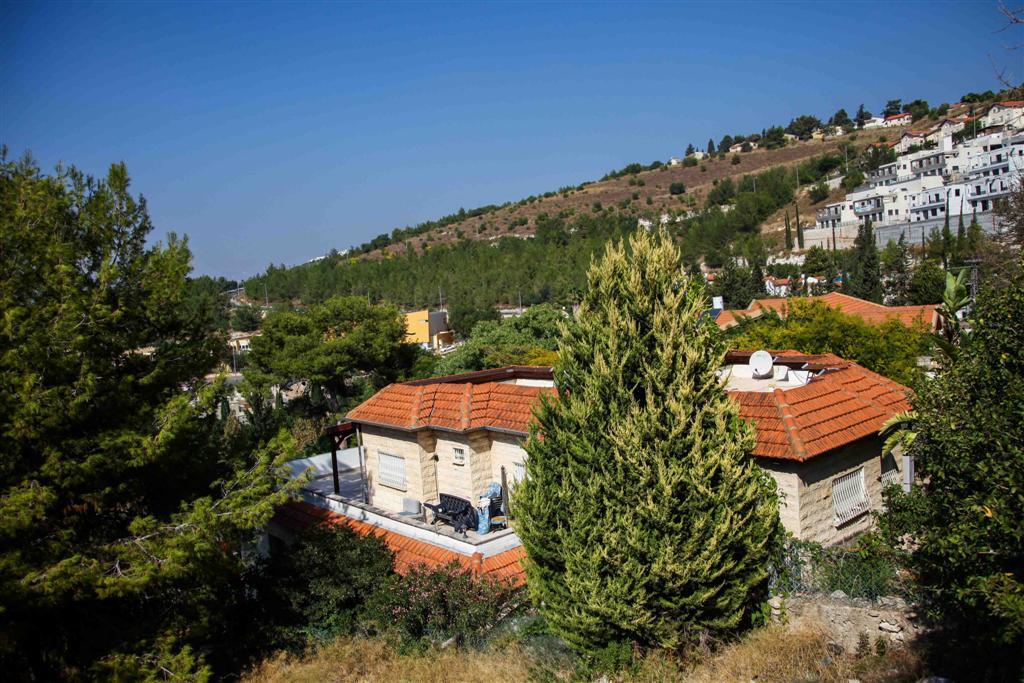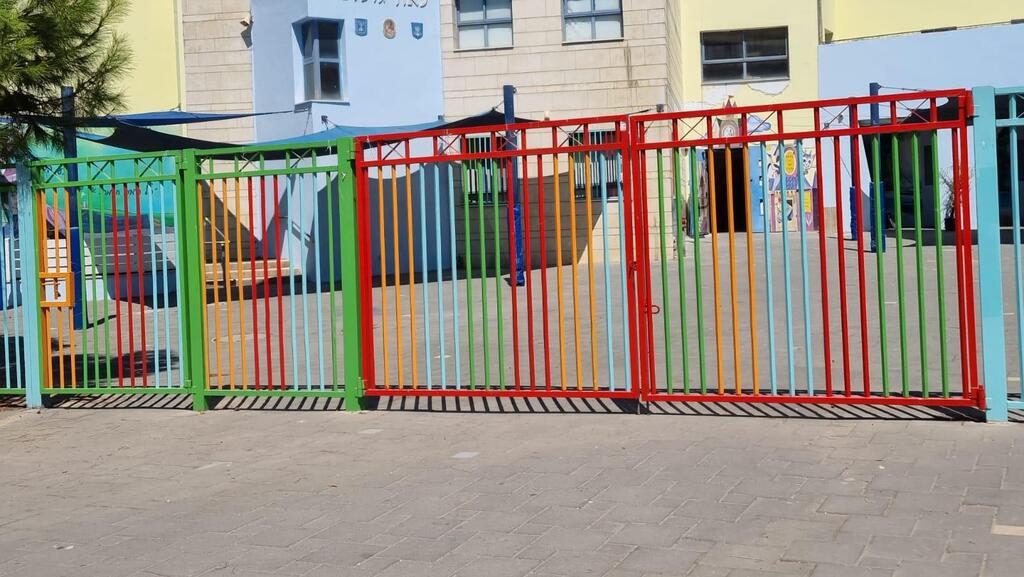Getting your Trinity Audio player ready...
Ram Gefen, married and a father of children, recently relocated to Amsterdam following his wife's job. To decide which neighborhood they would live in, he first looked for a suitable school.
Read more:
"We made our choice in the most Israeli way possible: we wanted a house near the Jewish school, so we simply walked around," he explains. "We came from Tel Aviv, where we lived with our three children in an 860-square-foot apartment, so having a large house was important to us. We live in a green neighborhood with many families—it's like the Ramat Aviv [an upscale Tel Aviv neighborhood] of Amsterdam."
Gefen is the head of the research department at Madlan, an Israeli website that provides information and data on residential neighborhoods for prospective real estate buyers. So, you can trust that he conducted all the necessary checks before settling on a neighborhood for his family to live in.
Did you examine the statistical data?
"Yes, but in Amsterdam, you have to pay for in-depth analyses by neighborhood. The problem in Israel is different. There is a lack of transparency from the government regarding data. The state doesn't make the information accessible in a clear way," he says. What information is he referring to? For example, information about schools and the state of education in the area.
“Exams scores don’t reflect the mental state of the students. There is no way to know the level of violence in the schools, the burnout level of the teachers, the satisfaction of the students and parents—there are no indicators for these things. Today, all the information is available on Facebook. There is nothing objective," he says.
According to Gefen, it is not just in the field of education that you will struggle to find objective information, which is the topic that most interests potential apartment buyers. "Israel Police publish data because they are obligated to, but they don't want us to understand it—so what you get is an Excel file that you have no idea how to read," he explains.
"In general, the state has various methods to create a picture that is rosier than reality. For example, consider a neighborhood where half of it is comprised of housing projects, and the other half is filled with extravagant villas. In the villas live people with a perfect socio-economic score, and in the housing projects, those with a score of four or below. Such an area receives a score of seven. This is how the state obscures an area that should actually have a score of four," he explains.
The choice of our living environment will affect our future and the future of our children, our personal security and the security of our property, our mental health and our social connections—and that's just a partial list. So how, despite all the difficulties, can we make an informed decision?
With the help of experts in the field, we explored what aspects to examine, according to age and family situation.
Singles
Apartment Supply: "For single individuals, I recommend, first and foremost, looking for neighborhoods with two-to-three-bedroom apartments," says Gefen. "I assume that entertainment is important to them, so it’s worth checking that there are entertainment venues in the vicinity. Many singles don't own a car, so proximity to public transportation could be a significant factor."
Vlad Markovitz, the owner of UniQue RealEstate, which primarily operates in the Kiryat area, adds: "In older buildings, such as townhouses, there are still two-bedroom apartments available. In such places, I can assure peace from children's noise, but I cannot guarantee quiet when it comes to noise from bachelor parties."
Location: According to Markovitz, "The world of singles can be divided into two: those who are divorced and those who have never been married. The latter are generally less mobile, so for them, I recommend preferring the city center, both for the convenience of transportation and to be close to entertainment hubs."
According to Gefen, the segmentation of neighborhoods based on family status is not yet available to the public, but it will be soon.
"We are currently analyzing the latest CBS (Central Bureau of Statistics) data, and we are trying to determine how many young families, mature families and single individuals reside in each city."
Families
Even though the term "relocation" usually refers to someone moving their place of residence abroad, typically for work-related reasons, Ruthie Rosenberg-Dar, a 39-year-old married mother of four and owner of a digital marketing company, doesn't hesitate to use it when talking about her move—from Tel Aviv to Yokneam Illit.
"I lived in Tel Aviv for ten years. I got married while living in the city, and two of our children were born there. It was fun, but I always knew that I wouldn't raise my children in the city. Leaving Tel Aviv was a major crisis. I was very connected to the city. I needed support," she says.
So why move?
"I have no doubt that it’s much better for the children here," she continues. "Everything has its pros and cons, but at the end of the day, the children roam around freely here. A child who can walk home from school alone, play outside and move from house to house—that's amazing freedom. That's how I grew up."
Rosenberg-Dar started a Facebook community called XTLV - Almost Former and Former Tel Avivians, where members ask specific questions, such as the education level in a particular community, but also more general questions, like where it would be good for them to move. "Social networks have completely changed the way we search for a place to live," she says.
Education: "I recommend approaching the education department at the municipality," suggests Rosenberg-Dar, "and asking for details such as the number of classes and their size, whether the school has won any awards, and so on. After that, check if there is a community center nearby, youth movements, whether you need to drive the children from place to place and if they have convenient public transportation."
Markovitz adds that "a family with a member who has special needs should pay special attention to factors such as proximity to healthcare and treatment services, special education institutions and transportation to these places near the home - this can be checked with the Education Ministry."
Socio-economic status: Orna Weisswasser, a real estate agent and owner of a family law firm in Ramat Hasharon, talks about the situation that ultimately interests us all - the neighbors.
"Some people will do everything and take especially high mortgages in order to live near people of a high socio-economic status, while others do not see this as a major advantage - on the contrary, they see it as a disadvantage. They do not want to raise children next to families where everything is given on a silver platter. There are people who will do everything to show off what they have, and there are people who will do everything to be modest."
Gefen is convinced that the events in the country surrounding the government’s judicial overhaul will affect us when we come to make a fateful decision such as our place of residence.
"People will always prefer to live near those who are similar to them," he says emphatically, "so the religious character of a residential area is something that people usually know, but the socio-economic index of a specific neighborhood is information that can be obtained from a realtor - as well as political positions."
"People want to live in a good neighborhood," Weisswasser also says, "What is a good neighborhood? People like themselves. To get this information, I suggest physically walking around the neighborhood. There is no substitute for legwork."
Downsizers
Many of Weisswasser’s clients are older couples whose children have left the nest, and their housing needs have completely changed from what they were when they belonged to the previous category. "These are usually people whose children have moved out, and they no longer need the space and the stairs," she explains.
Mobility/public transportation: Markovitz divides the older couples into two groups - "those who are mobile, meaning they have a car, and those who do not. The first type will want a quiet and less central area. For those who are not mobile, it is important to check that there is public transportation in the area and that the property is close to a bus station. There are apps for this purpose that provide information about bus routes and station locations," he says.
Proximity to medical services and emergency centers: "Age takes its toll," says Markovitz. "It's advisable to go to the health insurance websites and find out where there are family clinics, consultation centers and where there are emergency medical centers."
Traffic is for everyone
Singles, divorced individuals, families, seniors – despite the differences, we are all in this together. So here are a few points that interest all of us:
Convenient entrances and exits to the neighborhood: The extensive construction in residential neighborhoods in Israel is increasingly choking the entrances and exits for private vehicles. It is also recommended to physically visit and drive at different times to and from the intended neighborhood to check the traffic flow. For those for whom this option is less convenient, the Waze app can provide information on busy times for your relevant travel route through the Plan a Drive feature.
Dog parks: Let's not forget our four-legged friends. On various municipal websites, you can usually find a map of dog parks, where you can also meet new neighbors.
Construction zones: Nobody wants to buy an apartment and discover the next day that the area is about to become a construction site. It is advisable to visit the municipal website, to the building and planning section, and check the future plans using the plot and parcel numbers. If you can't find the necessary details there, you can contact the planning and construction department of the municipality.
Price: Madlan provides information about transactions made in the area, but pay attention to this: like all statistical data, there can be biases and outliers. For example, an apartment sold at a lower price because it faces a cemetery will lower the average price in the neighborhood in a way that may be misleading.
So, in fact, you should treat all the information you receive—whether it comes from a real estate agent, applications, or friends and community members on social media—with scrutiny.
Sit with yourself or with your family members and make a list of the things that are important to you, both in the house itself and in the living environment. Think a few years ahead—and do some footwork. The home you will have, as well as its surroundings, should precisely suit you.









